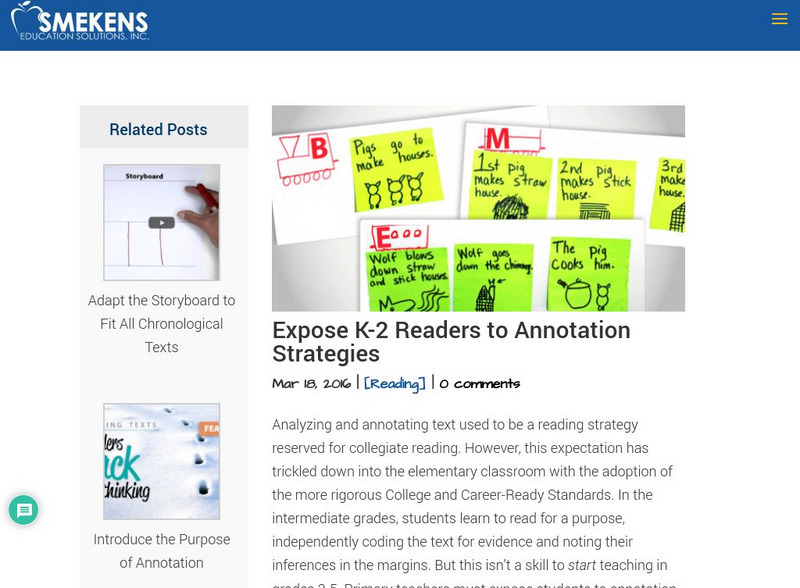Curated OER
Rocks and Minerals
Take young geologists on an exploration of the collection of rocks and minerals that we call Earth with an upper-elementary science instructional activity. Through a series of class discussion and hands-on investigations, students learn...
California Academy of Science
Guess That Spice
From medical treatments to cooking, people have been using herbs and spices for thousands of years. Perform a blind smell test of household herbs and spices to engage students in learning about ancient spice trading. Research the history...
Curated OER
Clothesline Sleuth
What fabrics are our clothes made of? Where do those fabrics from? Lead your pupils to discover the answers to these questions and more. Class members have a chance to play with various fabrics, invesitgating the materials and labels...
Read Works
Biography
Familiarize your class with the genre of biography. After some direct instruction about biography, work together to discuss historical facts and significant events from A Picture Book of Anne Frank by David A. Adler. In order to assess...
Curated OER
Compare and Contrast Passages
Combine two skills with the activities included here. Pupils not only practice determining the main idea of short passages, they also use a Venn diagram to compare and contrast the main ideas of the different passages. Start out...
T. Smith Publishing
48 Contiguous States
What do your pupils know about the United States? This resource asks learners to respond to 10 questions about certain states and landmarks. Useful for a geography lesson and to help familiarize your learners with the continent. An...
Curated OER
Mighty Earth Movers
Note that although the publisher lists almost all of the Common Core standards for both math and language arts, you will most likely want to take the general topic and choose which area to focus on. Regarding math, pupils measure worms...
Curated OER
Just Lookin' For a Home
What is a boll weevil? Your class can find out that and more by following the activities included here. Pupils read an article, sing a boll weevil song, add to the song with their own original lyrics, illustrate the song, study the...
Curated OER
Back to the Farm
Read up on farming and ranching and connect this information to your learners' lives. After reading, send class members home to fill out a family tree and trace their family history, focusing on farming and ranching backgrounds. Once...
Curated OER
Truth or Hogwash
Explore the history of domesticated pigs and their important byproducts. After discussing the use of pigs, class members create game boards describing the animals. While playing the game, they determine if the answers are true or...
Beacon Learning Center
Beacon Learning Center: What Caused It?: Student Web Lesson
Students are asked to be detectives while they read and to look for the cause/effect sentences in the paragraphs. In this lesson, students read paragraphs and answer questions about it by either typing in their responses or selecting...
Beacon Learning Center
Beacon Learning Center: Interpreting Line Graphs
This site is a lesson on creating and interpreting a line graph. It explains how a line graph is created and then asks questions about what is learned from the data. Students type in open responses, and answers and feedback follow.
Beacon Learning Center
Beacon Learning Center: Piece of Pie
This is a tutorial for creating and practice interpreting pie charts. They use the example of number of people in each of 24 families to demonstrate how the pieces of pie are created. Then questions were asked and students input the...
Beacon Learning Center
Beacon Learning Center: Push Ups
This is a tutorial on line graphs including when, how, and why one might choose to use them and how to interpret the data when it is complete. This one is to reach a goal for the number of push ups needed to win the Presidential Fitness...
Other
Into the Book: Inferring: Using the Clues
Watch an introductory tutorial about inferring during reading, and then choose from several different types of texts to practice using the skill.
Other
La Rue Literacy Exercises: Reading a Map: Quiz 12
In this quiz, students are given sections of a map with locations like the school, post office, back, etc. They are asked questions about directions from one place to the other.
ReadWriteThink
Read Write Think: Charting Characters for a More Complete Understanding
Contains plans for one 60-minute lesson that teaches about a reading strategy called Character Perspective Charting. In addition to student objectives and standards, these instructional plans contains links to PDF handouts and links to...
ReadWriteThink
Read Write Think: Visualizing Using the Sketch to Stretch Strategy
Contains plans for three lessons to improve reading comprehension using a visualizing strategy called sketch-to-stretch. In addition to objectives and standards, this instructional plan contains links to sites used in the lessons as well...
ReadWriteThink
Read Write Think: Venn Diagram, 2 Circles
A printable Venn diagram to use when comparing and contrasting two things or topics. Directions on how to use this graphic organizer as well as lists of teaching ideas and related resources are also provided.
Cengage Learning
National Geographic: Informational Text and Young Children [Pdf]
Research-based informative article on when, why and how to introduce and teach reading skills with informational texts to early-elementary students beginning as early as kindergarten.
Other
Fdlrs: Thinking Maps: Examples From Brevard Public Schools
See examples of the use of the eight graphic organizers from Thinking Maps. These maps help students organize their learning and identify ways to reflect different kinds of text. The several examples from each grade K-6 show how to use...
Other
Smekens Educational Solutions: Expose K 2 Readers to Annotation Strategies
This article discusses how to begin teaching students in K-2 to record their ideas about text using highlighters, colored pens, large graphic organizers, and sticky notes. Students can retell a story with a storyboard, use a web to find...
University of South Florida
Fcat Express: Organizing Information
Strategies to help students organize information found in a text provided by a standardized test preparation site intended for fourth grade. Includes strategies such as graphic organizers, hierarchical summaries, KWL, and previewing.
E Reading Worksheets
E Reading Worksheets: Setting Worksheets
In this learning module, students will study the concept of setting in literary text. Worksheets and PowerPoint lessons are provided to help students practice with finding "settings" and then citing reasons that support their answers.



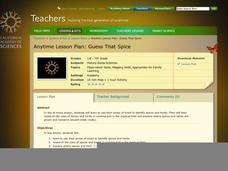
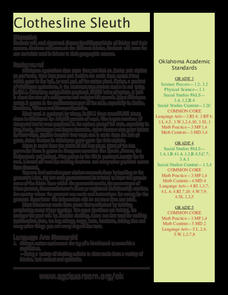





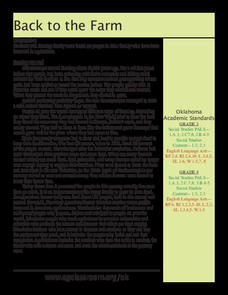
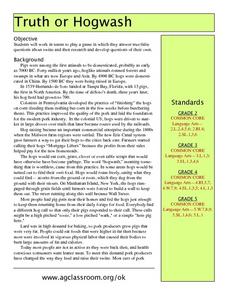
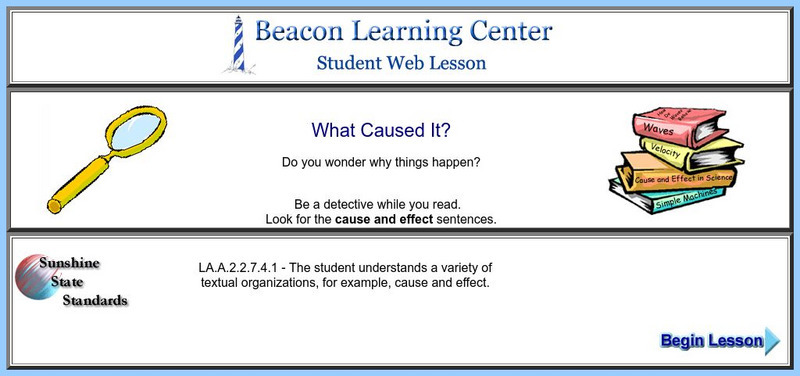
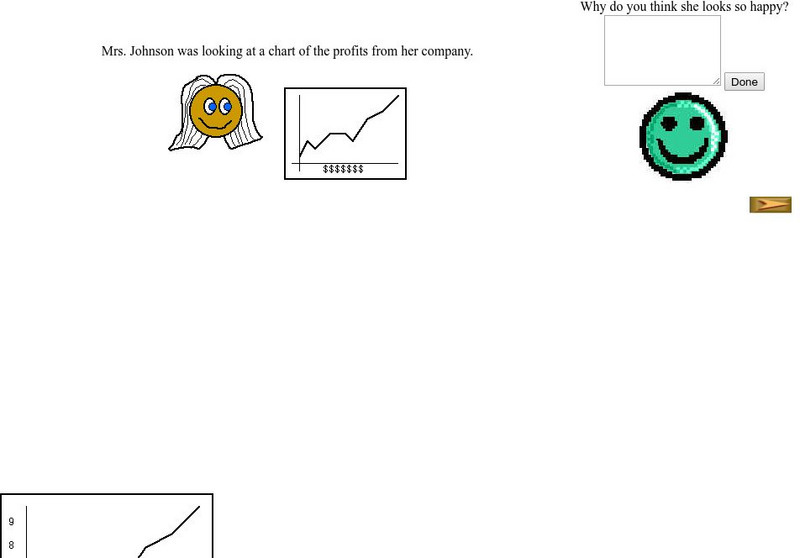






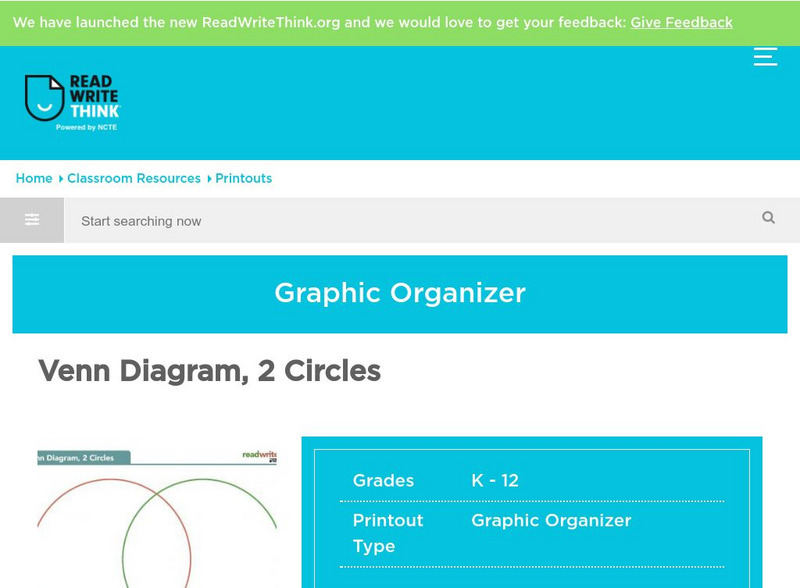
![National Geographic: Informational Text and Young Children [Pdf] Professional Doc National Geographic: Informational Text and Young Children [Pdf] Professional Doc](https://d15y2dacu3jp90.cloudfront.net/images/attachment_defaults/resource/large/FPO-knovation.png)
